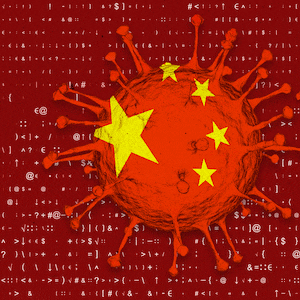Facebook booted a China-linked disinformation campaign that hyped up the People’s Republic to audiences in Southeast Asia and the U.S., according to a company investigation released on Tuesday.
In a Tuesday press conference, Facebook’s head of cybersecurity policy, Nathaniel Gleicher, said the network focused mostly on regional issues to audiences speaking Chinese, Filipino, and English.
The network briefly strayed into U.S. politics with posts both criticizing and supporting President Donald Trump, former Vice President Joe Biden, and former South Bend, Indiana Mayor Pete Buttigieg.
The inauthentic network centered around a cluster of “55 Facebook accounts, 11 Pages, 9 Groups and 6 Instagram accounts,” according to Facebook. In sample content released by Facebook, a fake news outlet dubbed “South China Sea Outpost” criticized American warnings about predatory Chinese state-owned enterprises. Cached copies of the South China Sea Outpost’s since-deleted page show it focused mainly on repackaging links to legitimate news outlets from regional media outlets.
In another example of the network’s activity shared by Facebook, one poster copy-pasted content from Democratic activist and fundraiser Scott Dworkin which criticized President Trump’s handling of the coronavirus pandemic.
American politics was mostly a sideshow for the network, with “almost no engagement around this content,” according to Gleicher. Of the network’s 133,000 followers, less than 3,000 were based in the U.S.
The network, traced by Facebook to operators in China’s Fujian Province, focused mostly on regional issues in the South China Sea and around the Philippines, including protests in Hong Kong, China’s expansive territorial claims, U.S. naval activity in the South China Sea, promoting the authoritarian Philippines President Rodrigo Duterte, and news about Filipino expatriate workers, according to Facebook.
The suspension follows previous China-linked takedowns by both Facebook and Twitter focused on spreading pro-Beijing propaganda on social media platforms banned in China.
In late 2019, Twitter suspended a large network of inauthentic Twitter accounts focused on criticizing protests against mainland rule in Hong Kong. More recently, both Twitter and Facebook have found China-linked disinformation networks spreading propaganda about China’s response to the coronavirus pandemic and criticizing the Trump administration and its handling of the virus.
While U.S.-related content in Facebook’s most recent takedown appeared to be minimal, the subject of Chinese interference in the 2020 election and whether it represents a greater threat than Russia has proven controversial within the Trump administration.
In August, the Office of the Director of National Intelligence listed China, along with Russia and Iran, as three countries seeking to meddle in the upcoming presidential election. China, counterintelligence chief William Evanina wrote, "prefers that President Trump—whom Beijing sees as unpredictable—does not win reelection" and “has been expanding its influence efforts ahead of November 2020 to shape the policy environment in the United States."
But when FBI Director Christopher Wray testified before Congress this week about Russia’s “very active efforts” to sow discord in the U.S. electorate before November, President Trump unloaded on Wray for failing to hype the threat from China.
“But Chris, you don’t see any activity from China, even though it is a FAR greater threat than Russia, Russia, Russia. They will both, plus others, be able to interfere in our 2020 Election with our totally vulnerable Unsolicited (Counterfeit?) Ballot Scam,” Trump tweeted.
Facebook also announced that it had taken down a separate disinformation networks, linked to Philippines security forces, that was focused on “domestic politics, military activities against terrorism, [a] pending anti-terrorism bill, criticism of communism, youth activists and opposition, the Communist Party of the Philippines and its military wing the New People’s Army, and the National Democratic Front of the Philippines,” according to Facebook.
The network was uncovered by the Filipino news outlet Rappler, which has faced mounting security threats and legal challenges for its investigations into, and coverage, of the Duterte administration.







